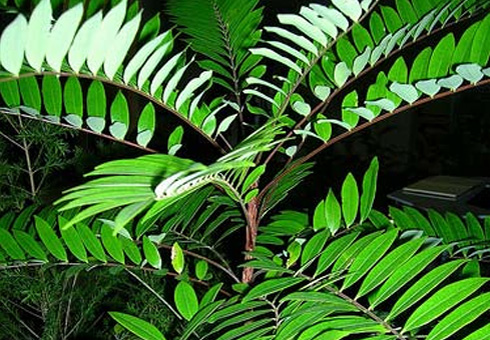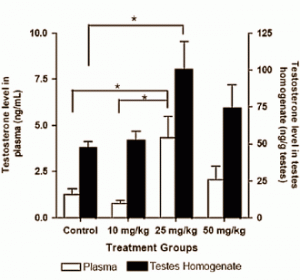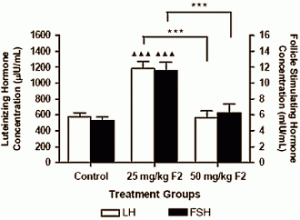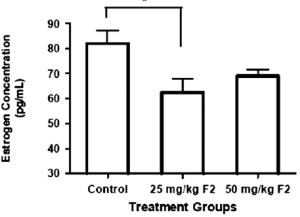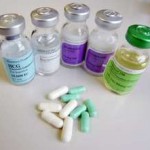By Admin – Steroidal.com
Tongkat Ali otherwise knows as Eurycoma longifolia is one of the most popular ingredients in testosterone booster products and has been for the last few years. Originating from Malaysia and Indonesia. Its uses traditionally are an antimalarial, aphrodisiac, anti-diabetic, antimicrobial and also show antipyretic activities. Various purified extracts of Tongkat Ali have hit the shelves over the years the most famous being LJ100 by Hp Ingredients with a 40% Glyco Saponins and 22-28% Eury Peptides. This claims to raise testosterone levels a fair amount, but studies conducted are done by Hp Ingredients showing a conflict of interest. Other animal studies have shown a positive increase in testosterone levels, but nothing has been done on proving how Tongkat Ali raises testosterone in humans, until now.
Testosterone boosting products or drugs act different on the body to achieve this rise in endogenous testosterone. Some act on the hypothalamus by inhibiting estrogen receptors. Drugs that do this are Tamoxifen Citrate (Nolvadex) and Clomiphene Citrate (Clomid). Other testosterone boosting drugs act by changing the androgen:estrogen ratio by lowering estrogen levels. Aromatase inhibitors, such as, Arimidex, Letrozole and Aromasin work by this mode of action. Other herbal products claim to act directly on LH levels, such as, Fadogia Agrestis. So how does Tongkat Ali raise testosterone levels?
At the Universiti Sains Malaysia researchers have worked out how extracts of Eurycoma longifolia boost testosterone levels. The extracts contain the compounds eurycomanone and13-alpha (21) epoxy-eurycomanone, and these boost the production of the hormones leutinizing hormone (LH) and follicle-stimulating hormone (FSH), thus raising levels of testosterone.
They used methanol to make an extract of Eurycoma longifolia and further purified it, separating it into to four different fractions. Over time the Malaysian researchers concluded the extract containing 32% quassinoids was the extract responsible for making the testes in the animals the largest, possibly indicating a rise in hormone production. The two most important of these were eurycomanone and 13-alpha (21) epoxy-eurycomanone.
For 52 days the rodents were given 25mg per kg of bodyweight of Eurycoma longifolia extract which caused a significant rise in the rat’s testosterone levels. An increase in LH and FSH was also observed in the active ingredient subjects. However, a decrease in the rats’ blood of estrogen was also discovered.
The Malaysian researchers then gave the rats the quassinoids separately and both eurycomanone and 13-alpha (21) epoxy eurycomanone increased the rats testosterone levels.
So it seems Eurycoma longifolia boosts testosterone levels by being somewhat anti-estrogenic. Other products that act similarly are
This wasn’t a massive surprise as a study was done in 2011 showing a highly purified extract of Eurycoma longifolia’s showed anti-estrogenic effects comparable to Tamoxifen (Nolvadex), as shown here. This anti-estrogen effects of Tongkat Ali means that it works by increasing testosterone levels the same way selective estrogen receptor modulators (SERMs) work. By inhibiting the estrogen receptor (ER) in the hypothalamus. Or as aromatase inhibitors (AIs) work, but changing the androgen:estrogen ratio to favour androgens lowering estrogen. When circulating estrogen is lowered the body compensates by elevating androgen output.
But don’t go substituting your SERMs and AI’s for Tongkat Ali just yet. Over the counter products often carry cheaper non-purified whole plants and not the extracts detailed in expensive studies playing on the fact that they still contain the active ingredients needed.
Limitations to this study are that it was done on rodents and not humans, although often hormonal processes like this are the same or similar. The Malaysian Ministry of Science, Technology and Innovation and their university also conducted the study. Not Hp Ingredients or any other product manufacturer with a vested interest in the supplements industry.
Source: J Ethnopharmacol. 2013 Feb 13;145(3):706-14.




